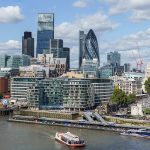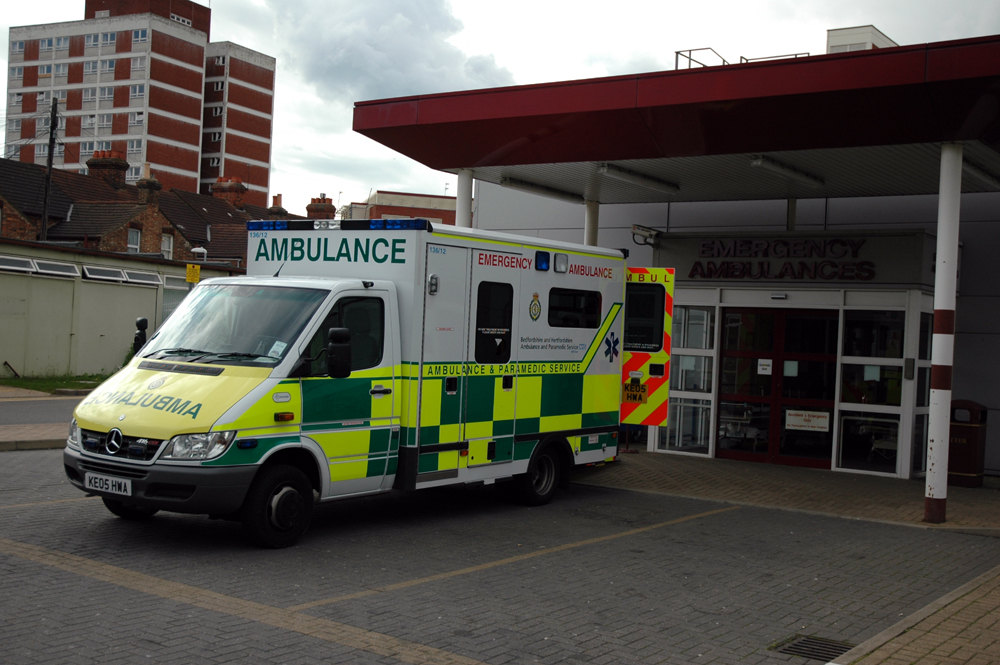LONDON (ViaNews) – Peter Bird, a professional writer and journalist from Milton Keynes, in the UK, went through an experience he won’t easily forget. He had a heart attack and was assisted by the UK’s National Health Service (NHS).
Mr Bird gave ViaNews an interview to let us know and make people aware of what to expect before, during, and after a heart attack. This story is also a great opportunity to gauge the efficacy and efficiency of the NHS professionals across the UK, as well as providing future improvement suggestions to the UK’s public health service.
Miguel Salvado: What caused you to need NHS Care?
Peter Bird: Two and a half weeks ago I had a heart attack. It was the first time, other than a check following a car crash which proved nothing amiss, that I had been to the hospital for myself since I had leapt over a rusty barrel at the age of eight and cut my knee open.
So how was the experience?
It is hard to be objective when you are having your life saved, but I will do my best.
There have been four elements on my journey so far – the surgery where I was diagnosed, the paramedic crew who transported me to a hospital ninety minutes away through settling snow. Then, the hospital itself, and finally the after-care service.
Many people suffer heart attacks, what was your own experience of the crisis?
To be honest, I didn’t know I’d had a heart attack. I woke up at about 3.30am with a dull pain in my jaw. It felt strange, especially when it shifted from the sides, where it had been like a niggling toothache, to the back of my throat. Something was wrong, but I got up and went downstairs to get a drink and an Anaddin, just in case. But there was little pain in the chest, certainly not the excruciating agony about which I had heard, and while my left arm ached, that pain shifted soon enough to the neck, where I assumed I had lain awkwardly and had a kind of frozen shoulder.
What happened next?
By the morning the pain had gone, and I even dozed on the sofa. But my wife insisted that I made an appointment at the surgery, and so I did. There, the practice nurse ran an ECG, and all seemed fine. I moved across to the main surgery and waited for the official results. I was called in person by the nurse whom I had first seen, rather than the normal message via the giant screen, and was hurried into a downstairs consultation room. ‘Better than the stairs,’ I was told.
The next thing I was being sprayed in the mouth with a burning chemical to remove the pain that was not there and the GP was on the phone to the local coronary unit (local, in rural Buckinghamshire, being the other end of the county). Somewhat bemused, as I felt fine, I waited for the ambulance to arrive while the GP and nurse fussed around in what seemed (but wasn’t) a needless fashion.
The NHS started well, then. Would you agree?
Yes, ten out of ten for the surgery team, who had spotted something unusual on the ECG despite my laughing protestations that I was wasting their time. Who knows where I would be had they missed the small change from normal on the closely printed graph?
The same maximum score goes to the ambulance crew, who chatted cheerfully while keeping an eye on the various lines and squiggles my misbehaving heart was giving out. Arriving at the hospital, I was highly amused to be transferred to a wheelchair, and only slightly concerned when taken straight to the rescue unit.
Was the experience as good at the hospital?
A difficult one to answer, as can be seen. After the rescue came a definite change in atmosphere. I was injected, had blood taken and a cannula fitted, all very professionally, but once on the cardiac ward, the discomfort of the surroundings was immediate. The ward was unbearably hot; the bed with its plastic cover sticky and sweat-inducing. The food was pretty awful, with a preponderance of sugary desserts accompanying every meal (although, as it turned out I only ever ate the evening sustenance, for reasons that will become apparent). Toileting was extremely difficult, and lacking in privacy, just a flappy polythene curtain separating me visually, if not aurally, from the rest of the ward. I never really got to grips with the ‘bottle’, which would often lie unemptied next to me for the best part of a day. As for the commode…well never having experienced boarding school or the services, let us say that success was elusive.
Treatment wise it was all excellent, especially the following night when the delayed chest pains hit with a vengeance. To ring the emergency buzzer or suffer from British grit and set jaw? I compromised and told the nurse, a properly concerned chap who promised to get the doctor. The necessary treatment – an angiogram and probably stents – had been proposed for earlier that day, but a series of emergencies had put me back on the treatment schedule to the following day (where once again I would be starved, before finally having the treatment cancelled for the second time). It seemed sadly ironic that I should feel no pain at home but suffer agony at the hospital. However, the doctor was superb; he explained what was happening, proved to me that the stabbing jolts were no more than the bruising of the heart and ordered the wonder of morphine which offered almost instant relief. But meanwhile, the various machines to which I was attached through a series of tangled wires and sticky pads were beeping with alarming frequency; my heart rate was going up to 180 and down to 70 with alarming speed, and it was all quite scary. The doctors looked concerned, but all professed not to be worried by the errant organ.
A Less Than Comfortable Experience
What was it like being an in-patient?
Mornings for the next two days consisted of a bowl of warm water in which to wash, ever-increasing greasiness of hair and a fast on the off chance of getting the treatment done. The only feedback as to whether it would happen came when the catering staff delivered food, meaning I had missed the boat once more.
But, with the ward emptying for the weekend, finally late on Friday afternoon I was wheeled into the theatre while the staff wondered whether they would be snowed in for the weekend. The angiogram was strange; not at all uncomfortable but lying still as the wires and stents passed into my chest like the painless swelling of a bee sting was disconcerting. My oxygen levels fell, and soon I had tubes pushed into my nose. In fact, this had been a problem all along, except I had thought it good that the white flashing figure was so small – after all, heart rate and blood pressure were better low than high – but I was misled by my ignorance and having insufficient oxygen in my blood supply was perhaps more of a concern than the doctors let on.
Anyway, treatment completed I was allowed out the following afternoon, although no doctor came to see me at any stage of that final day.
All’s Well That Ends Well
So, can you sum up your experience?
The treatment was good – I am steadily getting better so it must have been. But the hospital was uncomfortable, and often communication was poor. It took two days to get a pillow and the strange gowns we were forced to wear baffled me throughout my stay, leading at one stage to a rather embarrassing exposure of unattractive genitalia which I only spotted when the nurse said, sarcastically: ‘Nice!’
The medical staff spent a lot of time watching computer screens and writing notes, sitting, coffee in hand, in a sort of central console area from which wards spread like the bulky legs of a giant spider; it seems certain that they were doing what they needed to do, but it would have been good to have more information. Even more alarming was that snippets of conversation would be heard, which might or might not be applied to me, raising worry levels even more. I picked up an infection, which was dealt with reasonably quickly – I could have had it before I went in, and on one occasion I was given the wrong medication – extra blood-thinning drugs – but no harm was done.
What about now, you are home again?
Once home, the hospital has followed up well. A call at least once every three days to check how I am doing and answer my endless questions. Another ten out of ten here.
So that was the experience; it can only be described as horrible, but communication in the hospital apart, it was also very professional.
But for all that, there was more than a touch of the 1970s about the whole in-patient experience. That is not the fault of the professionals, but a reflection of insufficient funds to provide comfortable beds, better food and more than one doctor for three wards.
As well as a touch more privacy.







